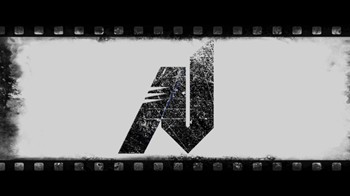Juice is one of those early 90s films helped by Boyz N The Hood and later eclipsed by it. What Ernest R. Dickerson does with this film is present something that borders on realism and 1950s urban drama fantasy. You can trace the roots of the narrative presented here to Jimmy Cagney, 1950s problem movies and the Blaxploitation run. But, it lacks the urgency of any of them.
![Juice (1992) [4K UHD review] 3 juice 4k 14](https://andersonvision.com/wp-content/uploads/2022/03/juice-4k-14-800x450.jpg)
Ernest Dickerson does something with Juice that hasn’t been nailed down since the WB gangster pics of the 1930s. You take a fantasy of inner city dangers and present them in a way that is mainstream enough to be approachable. Think about how all of these gang movies are presented outside of the mafia. It’s urban youth who stumble into crime as an escape or a thing to fear.
The 1930s idolized it because Depression era youth needed an escape. The 1950s turned these same kids into something that polite society had to fear in the suburbs. Then, the 1970s had the Blaxploitation method turn the 1950s scaredy cats into the villains. When the 90s came for their turn at bat, not a ton had chance. Except for how America viewed Bishop, Q and the others.
![Juice (1992) [4K UHD review] 4 juice 4k 13](https://andersonvision.com/wp-content/uploads/2022/03/juice-4k-13-800x450.jpg)
Tupac Shakur made his feature film debut in Juice. So, why isn’t it better remembered? I mean I can still remember back when Juice first hit theaters and critics were claiming that Shakur could get an Oscar nomination. His Bishop is a villain the sense that Gordon Gecko or any other white criminal gets labeled a villain. They see the moment of opportunity and seize upon it.
Juice is a film about the business of surviving when so many just keep their heads above water. Q and the others want to stay out of trouble and see if they can have lives outside of the hood. Meanwhile, Bishop enjoys killing. It’s a mix of respect, but it’s also that survival instinct that comes from when a person has been stalked by too many other potential killers.
![Juice (1992) [4K UHD review] 5 juice 4k 12](https://andersonvision.com/wp-content/uploads/2022/03/juice-4k-12-800x450.jpg)
Early 90s urban cinema plays weird 30 years later, but you’re older than 25 and should realize that by now. Juice presents inner city strife and youth concerns in a way that makes it easier for a suburban and older audience to understand. Life is tough when you come from certain parts of America, but there are still good people not giving way to crime. It’s almost like Juice is trying to humanize people that your parents might not understand.
Does it gloss over certain aspects of the struggle? Certainly. It doesn’t matter how diverse you make a production, certain things do get sacrificed to make a dramatic story. While Demon Knight remains my favorite Dickerson movie, he manages to create something fascinating with Juice. It could easily be a Jimmy Cagney movie as much as standing on par with early Singleton work.
As time goes by, this film stand out more and more for me. It’s weird how the movies you couldn’t watch as a kid hit differently for you as an adult. The 4K pops in a way better than any Loews theater I would’ve seen Juice at back in 1992. But, that’s neither here nor there.
![Juice (1992) [4K UHD review] 6 juice 4k 11](https://andersonvision.com/wp-content/uploads/2022/03/juice-4k-11-800x450.jpg)
The Juice 4K UHD disc is pretty packed. Most of the special features originate from the 2017 Blu-ray. However, the 2160p transfer shines in true HDR and DolbyVision. The transfer plays pretty dark at times, but it holds up. What’s crazy is the DTS-HD 5.1 master audio track almost seems boxy in the back channels. Given the era, it wouldn’t have been a 5.1 mix, so I’m not quite sure what they could have done for the back channels.

![Juice (1992) [4K UHD review] 2 juice 4k title](https://andersonvision.com/wp-content/uploads/2022/03/juice-4k-title-scaled.jpg)

[…] keeps offering up stellar classic titles on next generation formats. Escape from L.A. comes to 4K UHD looking so much better than I expected. You don’t get any special features outside of a digital […]